The list of speakers for the Interoperable Europe Academy 2024 have been announced!
Stay tuned, more names to be announced in the upcoming days!
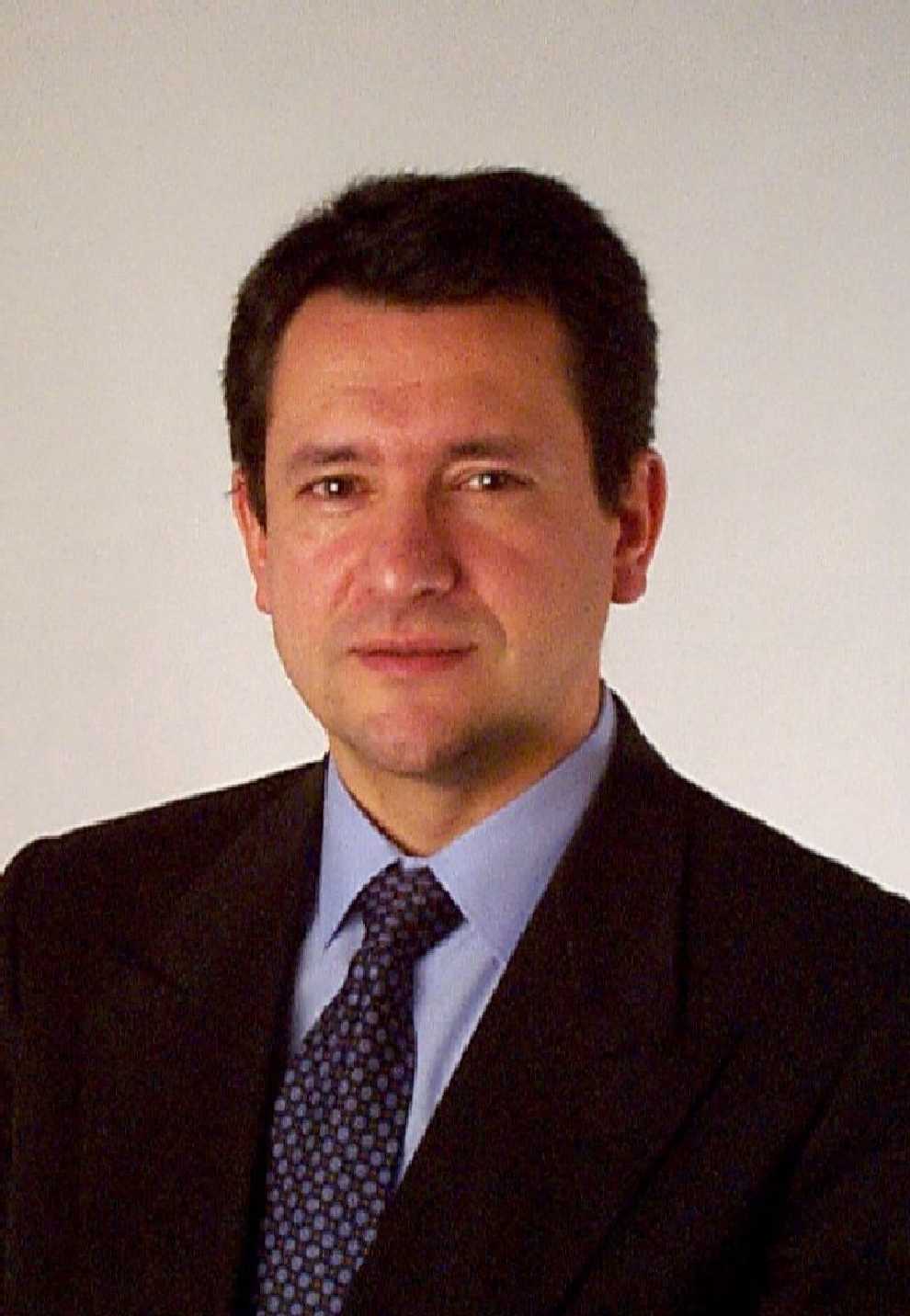
Raul M. Abril
Raul M. Abril is an officer of the European Commission. He is the Interoperability Architecture Solutions chief and responsible for a portfolio of interoperability programs in the European Commission including the European Interoperability Reference Architecture, EIRA, the eGovERA suite of tools (supporting public administration digital business capability building, portfolio management and digital transformation), and the interoperability assessment suite of tools (IMAPS, SIQAT, GIQAT, and CAMSS). He has +35 years of ICT professional services experience, most of them in the private sector and holding several senior positions including R&D Portfolio manager in a major USA IT vendor. His knowledge domains cover Research Methods, Advanced Analytics, ICT R&D (Portfolio, Product, and Project Management), Knowledge Management, and ICT domains like DSS, BI, Data Warehousing, DBMS, reference architecture for digital solutions, and eGovernment. Raul has been professor at several universities and been active publishing his research. Raul holds a doctoral degree (Brunel University, UK), an European PhD Certification (European Doctoral School on Knowledge Management, Denmark), an Ing. Sup. Informatics (UAB, Spain), and a Master in Project Management (The George Washington University, USA).

Carina Americo
Carina Américo is the coordinator of AMA Academy at Agency for Administrative Modernization, which is responsible for the promotion and development of the administrative modernization in Portugal, with specific emphasis on areas of omnichannel public service, digital transformation and innovation. Carina has 25 years of experience in designing and implementing training solutions for public administration, in the areas of digital services, digital transformation, interoperability, innovation, leadership and personal development. She oversees training programs for nearly 1000 Citizen’s Shops and Spots across Portugal and internationally, cultivating partnerships with government, academic, and private sector entities. Additionally, she actively participates in national and international working groups focused on digital skills development.
Raluca Barac Toderașcu
Raluca Barac Toderașcu brings over two decades of experience as a civil servant and legal counselor to her role at the National Institute of Administration (INA). With a deep understanding of public service dynamics, she is now focused on leveraging her expertise to drive the digitalization of civil service training. Raluca's practical insights and seasoned perspective are invaluable assets as INA navigates the complexities of modernizing public administration in the digital age. Her passion for innovation and adaptability led her to embrace the realm of digitalization within public administration.
Alexandra Balahur
Dr. Alexandra Balahur is the Team Leader of SEMIC – the Semantic Interoperability team in the Interoperability and Digital Government Unit of DG DIGIT. SEMIC is the team that developed open semantic specifications such as DCAT-AP, used across different open data catalogues and data spaces. Alexandra has a background in Computer Science, with a PhD in AI and NLP and 17 years of experience in scientific research and technical implementation of AI and data modeling and analysis methods and applications. After joining the SEMIC team in 2023, Alexandra has initiated a new line of work on AI in support of interoperability and interoperability in support of AI.
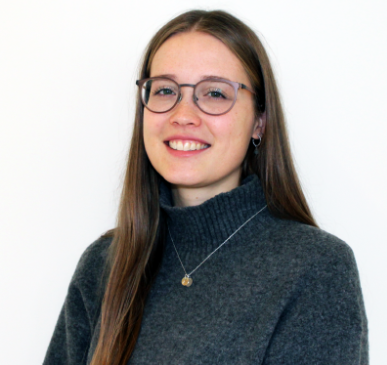
Felicitas Bitzenhofer
Felicitas Bitzenhofer is a policy assistant at the Interoperability Unit in the European Commission (DG DIGIT). She holds a MA degree in "Politics and Governance in the Digital Age" from the University of Tartu (Estonia). Since 2023 she has supported the work of the Unit in different areas, with the latest project being the guidelines for interoperability assessments under the Interoperable Europe Act.
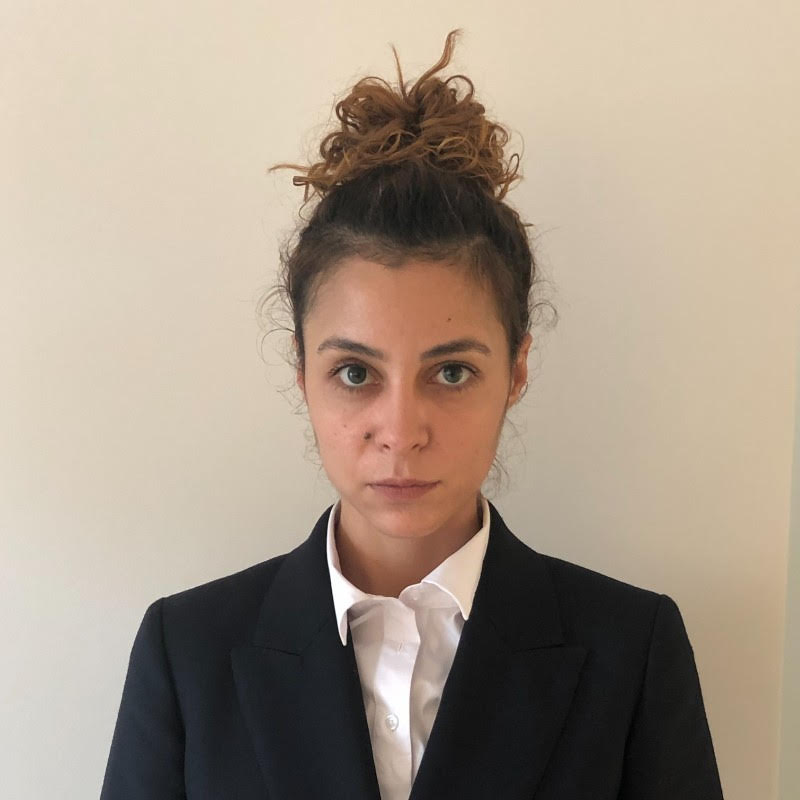
Alina Brebenel
Alina Brebenel, seconded from the Authority for the Digitalisation of Romania to the Interoperability and Digital Government Unit in the European Commission (DG DIGIT), is now project manager of the Interoperable Europe Academy.
Michał Bukowski
Michał is an enterprise architect in Polish Ministry of Digital Affairs and member of the European Commission expert group „Interoperability of EU Public Services”, working on Interoperable Europe Act. He is an IT project manager and business analyst with over 20 years of professional experience. Chief Editor of the Polish National Interoperability and State Information Architecture Portal. Graduate of MBA and philosophy studies, Chief Information Officer Government ICT Policy course and IT project management postgraduate studies.

Cesar Casiano
Assistant Professor at the Department of Technology, Policy and Society, within the Section of Governance and Technology for Sustainability (CSTM) at the University of Twente. His academic expertise is in the governance of environmental and digital policies (twin transition). He has researched and published on technology implementation, climate-sensitive cities transition, land policy, urban mobility, smart cities, open data and European Interoperability. He has coordinated and conducted research in Europe, Latin America, and Africa as part of Horizon, Interreg and European Commission projects. He is a UNESCO Inclusive Policy Lab expert, a Member of the Mexican Researchers System SNI 1, Digital Government Research (dg.o) 2024 program committee member, a European Commission expert evaluator for grant applications and projects in climate change, and an editorial board member of Nature Partner Journals -Urban Sustainability, Urban Planning, and Vivienda y Comunidades Sustentables.

Bernard Claes
Bernard Claes is responsible for the Interoperable Europe Academy, which is organising this event and offers free e-learning courses on interoperability. He is also responsible for Joinup, the European web platform aimed at making digital public services interoperable. He has 30 years’ experience in IT development at the Commission and in the private sector.
Caroline Corneau
Caroline is a project officer in the Building Blocks and Innovative Services Sector with the Directorate-General for Digital Services (DIGIT) of the European Commission. As project and contract manager for the Once-Only Technical System, her focus is on communications, events and supporting services to EU Member States in their implementation and roll-out of Once-Only. Previously, she worked as project manager for the Connecting Europe Facility Building Blocks, and before that for the European Parliamentary Research Service.
Joep Crompvoets
Prof. dr. ir. Joep Crompvoets is professor ‘Information Management in the Public Sector’ at the KU Leuven Public Governance Institute (BE). He is Research Manager, Senior Researcher and Consultant in the domains of GIS, Spatial Data Infrastructures, E-governance and Public Sector Innovation. He is also secretary-general of EuroSDR. He fulfilled numerous international projects in these fields of expertise. His research has been supported by UN-GGIM of United Nations Statistics Division, the World Bank, European Commission, BELSPO federal Public Planning Service Science Policy (Belgium), Netherlands Organisation for Scientific Research (NWO), Flemish government, IWT Agency for Innovation by Science and Technology, and several national governments around the world. More information can be found via this link.
Ewa Cyzio
Ewa Cyzio is dedicated to promoting digital-ready policymaking through planning, coordinating and implementing communication activities within the Digital-ready Policymaking (DRPM) team. She holds a master's degree in Psychology from the College of Interdisciplinary Individual Studies in Humanities and Social Sciences at the University of Warsaw. Since 2023 she contributes to the knowledge dissemination on legal interoperability with the aim to bridge the gap between policy design and implementation through multidisciplinary and best use of digital technologies and data.

Stefan Dedovic
Stefan Dedovic is a research associate at KU Leuven (Belgium) and is also working towards his PhD at the University of Tartu (Estonia). His personal experience of living, working, and studying in four countries (Belgium, Germany, Estonia, and Serbia) led him to contribute to the research on cross-border digital public services. His research and teaching focus on digital public governance, interoperability, digital identity and mobile government. Through his research and teaching, he aims to critically assess and explain the ongoing phenomenon of the development and implementation of cross-border digital public services.
Miguel Diez Blanco
Miguel Díez Blanco is the project lead of the Open Source Programme Office (OSPO) at the European Commission, which is the “go-between” for all activities outlined in the EC Open Source Strategy. Miguel has almost 20 years of professional experience ranging from software development projects to infrastructure and operations activities. During the last 11 years he has been working for the European Institutions. Miguel holds an MSc in Informatics Engineering from the Universitat Politècnica de Catalunya · BarcelonaTech (UPC) and an MBA at HEC Paris School of Management.

Julien A. Dupont
Julien Dupont serves as the Chief Information Officer (CIO) at the National Institute of Criminalistics and Criminology. In this capacity, he oversees the Institute's Information and Communications Technology (ICT) and is responsible for facilitating interoperability with various organizations at national, European, and international levels, including partnerships with agencies such as Europol and Interpol. With over 15 years of experience in ICT, he has a strong background in designing ICT infrastructure and applications for both the public and private sectors. His career includes Enterprise architect and Solution Architect roles at the Ministry of Finance, Asylum Agency and the Ministry of Justice, where he spearheaded data exchange initiatives.
Joao Frade Rodrigues
Joao is currently leading the Building Blocks and Innovative Services Sector with the Directorate-General for Digital Services (DIGIT) of the European Commission. His sector has a multifaceted and active role in shaping Europe's digital future encompassing the delivery of reusable digital solutions, the management of large Digital Transformation projects and advancing the Web3 (r)evolution.

David Geerts
David Geerts is senior research manager of the KU Leuven Digital Society Institute (DigiSoc), an interdisciplinary institute with the mission of enabling an inclusive digital society based on responsible, ethical and sustainable (use of) technologies. David has a master in communication sciences and a PhD in social sciences. He is specialized in Human-Computer Interaction (HCI) and Human-Centered Design, more specifically in designing social interactions in online media and Social TV. He was general chair of the ACM international conference on interactive experiences for television and online video (ACM TVX, now ACM IMX) in 2015 and was president of the TVX steering committee for two consecutive terms. David has authored or co-authored more than 150 publications in various international conferences and journals, and regularly gives presentations, tutorials and guest lectures on topics related to Human-Computer Interaction.
Bart Hanssens
Bart Hanssens is an Interoperability Expert at the Belgian Federal Public Service Policy & Support (BOSA). He is the architect of the data.gov.be open data portal, contributor to European metadata application profiles like DCAT-AP, former co-organizer of the Open Document Format Interoperability events and a long-time open source contributor.
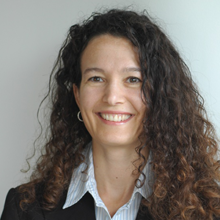
Andrea Halmos
Andrea Halmos is a Deputy Head of Unit at the European Commission; helping the digital transformation of public administrations in the EU through interoperability. Her work includes the implementation of the Interoperable Europe Act, with particular focus on the role of interoperability on common European data spaces, AI in the public sector, GovTech and the digital transformation of local and regional administrations. Previously, Andrea has worked for over a decade in the area of digital government. Her main activities included the development and implementation of the eGovernment Action Plan 2016-2020, the promotion of open and modular digital government and supporting the implementation of digital government at local level. During her time in the area of smart cities, she worked on supporting the emergence of AI-enabled Local Digital Twins in the EU. Prior to joining the European Commission in 2003, she worked for an internet start-up company as a consultant. Having graduated at the Budapest University of Economic Sciences, she received a master's degree in European studies from the College of Europe and from the Université libre de Bruxelles.
Gijs Hillenius
Gijs Hillenius in an IT project officer at the European Commission’s open source programme office (EC OSPO) since late 2020. During 2019 and 2020 Gijs was closely involved in the revamping of the Commission open source software strategy (C(2020/7149), which created the OSPO. Subsequently he was involved in the Commission Decision on the open source licensing and reuse of Commission software (2021/C 495 1/01); and in the creation and subsequent running of code.europa.eu - the code development platform for open source software projects for which European Union institutions, bodies, offices and agencies hold the intellectual property rights. Starting in 2007 and until 2020 he reported for the Commission open source observatory (OSOR.eu, now part of Joinup).
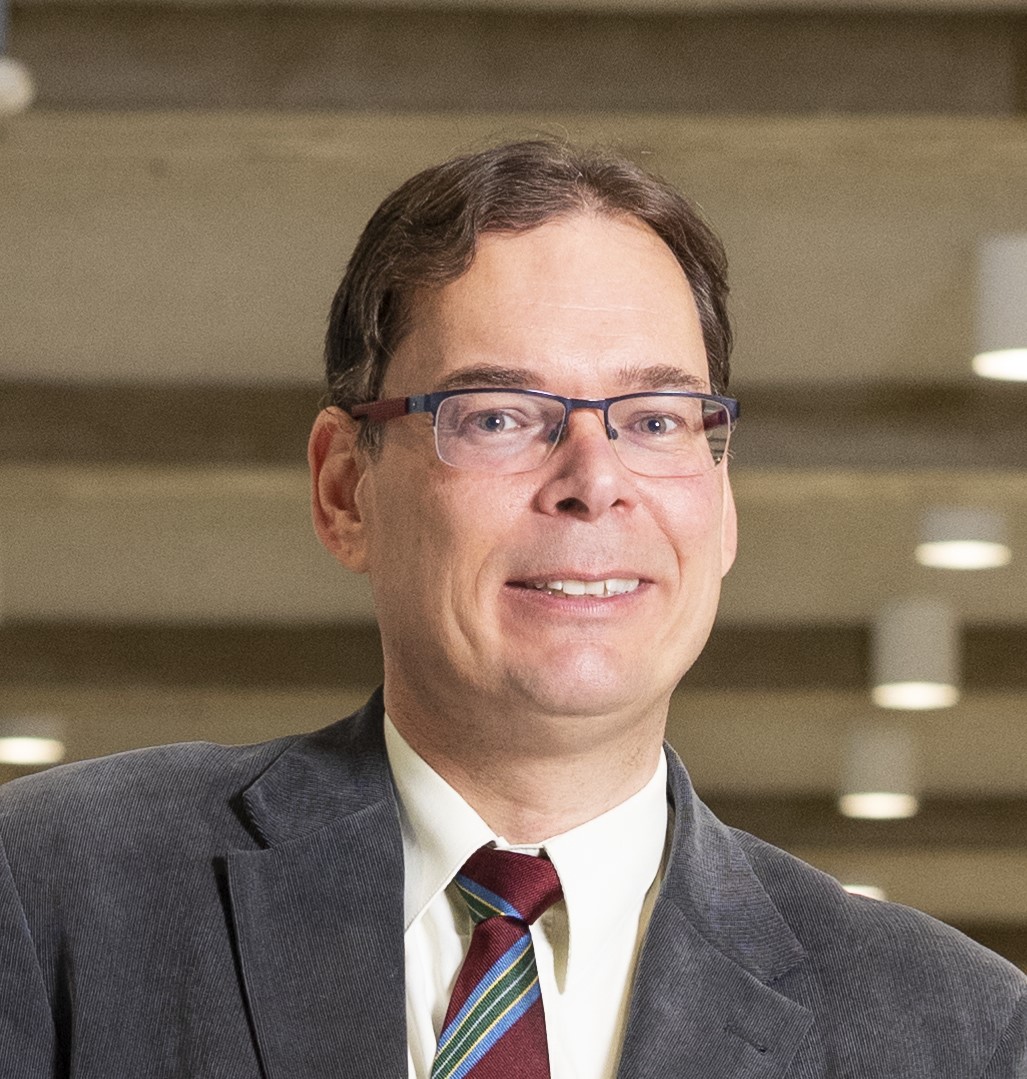
Marijn Janssen
Prof.dr. Marijn Janssen is a Full Professor in ICT & Governance in the Technology, Policy and Management Faculty of Delft University of Technology, head of the Engineering Systems & Servies (ESS) department, and (honorary) visiting professor at Bradford University, KU Leuven and Universiti Teknologi Mara. Marijn Janssen research is in the field of the governance of Smart and Open Digital Government, Open data and emerging technologies, like AI, Quantum computing and blockchain, which fundamentally change the organizational landscape and influence the governance. He is particularly interested in situations in which multiple public and private organizations want to collaborate, in which ICT plays an enabling role, socio-technical solutions are constrained by organizational realities and political wishes, and there are various ways to proceed. He is Co-Editor-in-Chief of Government Information Quarterly, chair of the IFIP WG8.5 in ICT and public administration, conference chair of IFIP EGOV-CeDEM–ePart series and past-president of the Digital Government Society (DGS). He has published over 600 refereed publications, his Googlescholar h-score is 90, having over 36K citations. More information: www.tbm.tudelft.nl/marijnj.
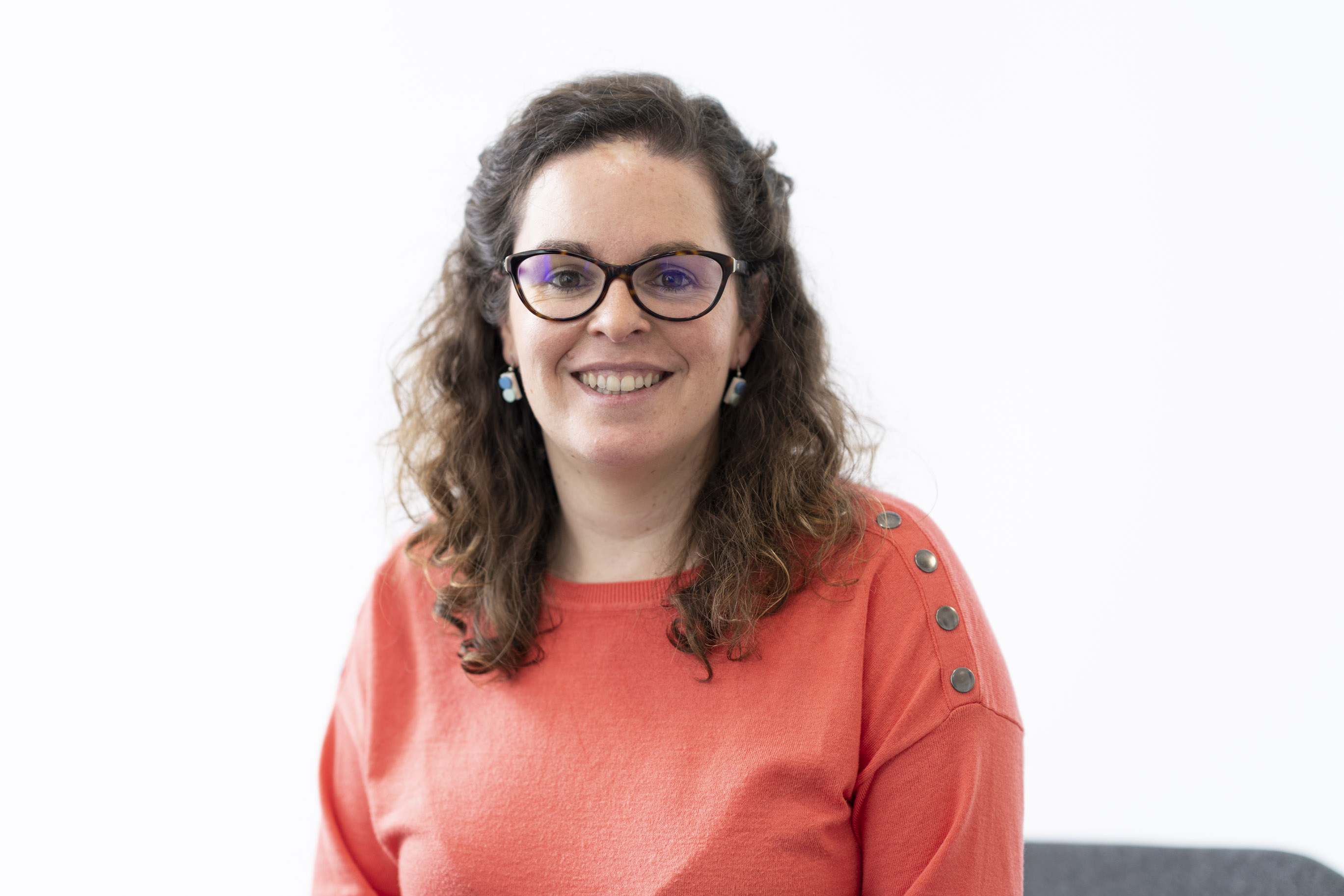
Alicia Jimenez Gonzalez
Alicia Jiménez González is a telecommunication Engineer with a master in International Research, Development and Innovation project management. She has worked for the last 12 years as European Project Manager, currently leading the European department at Gradiant. She has experience in digital transformation projects in different sectors, like public domain, industry, health and primary sector.
Isa von Kalben
Isa von Kalben, seconded from the city of Berlin to the Interoperability Unit in the European Commission (DG DIGIT), working since 10 years on public sector innovation projects, latest nut to crack the Interoperable Europe Act.
Athanasios Karalopoulos
Athanasios Karalopoulos works as a team leader of the Single Digital Gateway team of the European Commission, at the Unit "Digital transformation of industry" of the Directorate General for "Internal Market, Industry, Entrepreneurship and SMEs" (DG GROW). Athanasios has a special focus on digitalization as an enabler to the functioning of the Single Market. He joined the Commission in 2013 and he has been involved in many EU initiatives in the areas of data (incl. public sector & research data) and interoperability.
Petteri Kivimäki
Petteri Kivimäki is one of Europe's leading technical experts in digital government and interoperability solutions. His career spans from software development to crafting complex cloud and technology architectures for both companies and public administrations. Petteri has worked as the technical lead responsible for implementing the X-Road data exchange layer as the national interoperability solution in Finland. He also coordinated the joint open-source software development of X-Road between Finland and Estonia. Before joining the Nordic Institute for Interoperability Solutions (NIIS) as its Chief Technology Officer in 2018, Petteri worked as a technology architect in a leading global consultancy.
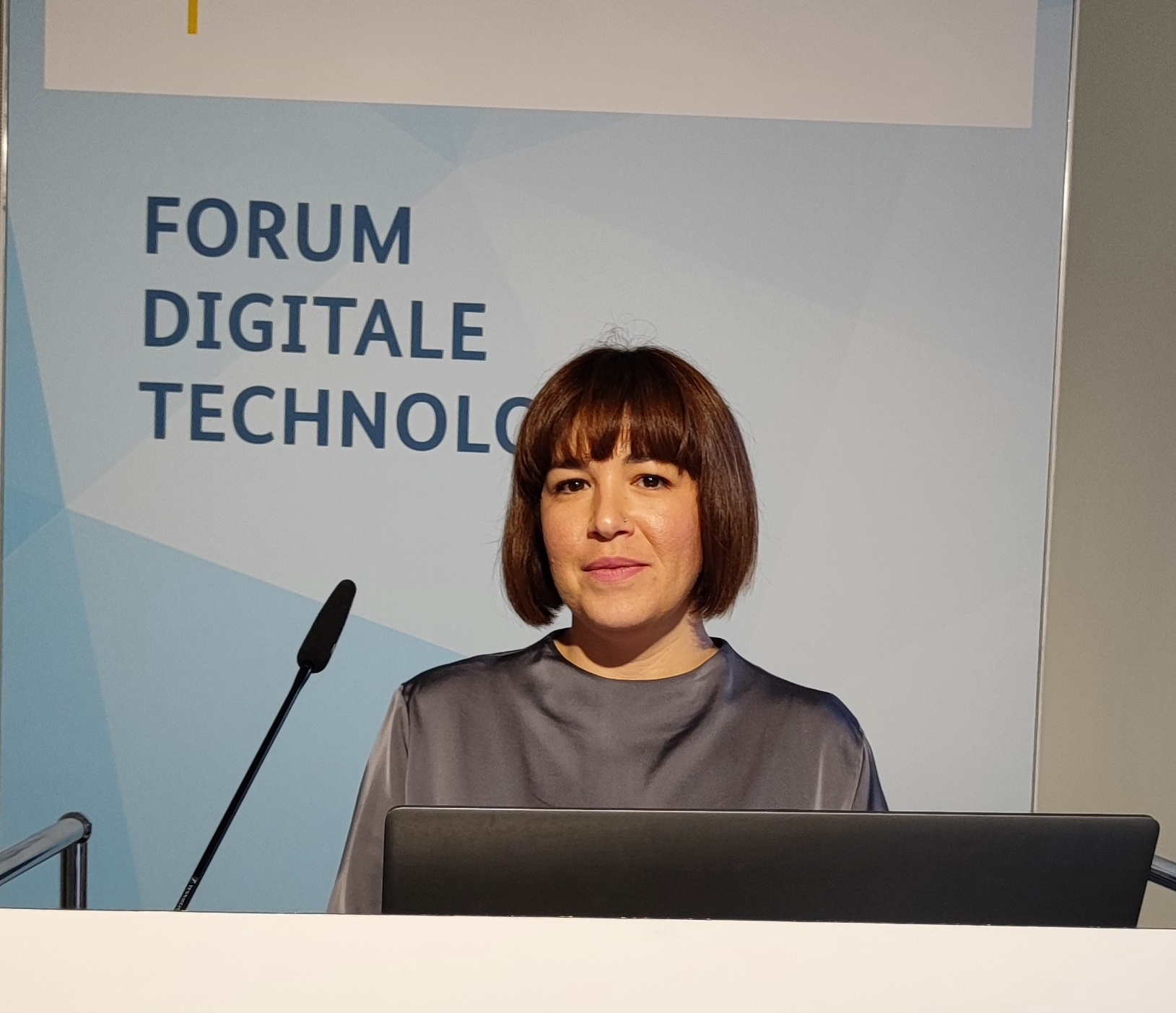
Mariza Konidi
Mrs. Mariza Konidi (F) is a highly accomplished Senior Project Manager at Uni Systems Greece, boasting over 15 years of invaluable experience spanning both commercial and research domains. Mariza holds a Bachelor of Science (BSc) in Industrial Management & Technology from the University of Piraeus, complemented by a Master of Science (MSc) in Information and Communication Systems from the University of the Aegean. She has further fortified her expertise with an additional MSc in Marketing & Communication with New Technologies, earned from the Athens University of Economics and Business. Currently, Mariza is immersed in the pursuit of her PhD in the realm of AI/ML for Security within the field of Social Sciences and Humanities. Since 2018, she has been actively engaged in the coordination and participation of numerous EU-funded research projects, spanning a wide spectrum of sectors including Cybersecurity, Governance, Manufacturing, Health, Transport, and Energy.
Ulla Kronborg Mazzoli
Ulla is Chief Advisor for the Danish Agency for Data Supply and Infrastructure where she works with digital government, data infrastructure, data driven innovation and value creation. Is lead on the Agencies transformation effort in establishing a geospatial data ecosystem, involving development of new business models and the setting up of measures for interoperability. She is the national INSPIRE Contact Point and Danish representative in several EU expert groups. Ulla holds a Master of Science in Geography and a diploma degree in Leadership and Management. She is the chair of the Danish Association for Geographic Information´s International Committee.
Barry Kruger
Barry has extensive experience in the strategic implementation of learning technologies to effect sector-wide transformation, across K12, post 16 and Higher Education, the health, cultural and third sectors. He has most recently been working on regional digital transformation initiatives with Unicef in Egypt and for the Prime Ministers Office in UAE. He was previously a Director at the UK Learning and Skills Improvement Service, and headed digital teams at the BBC and British Educational Communications and Technology Agency (Becta). His expertise covers the strategic deployment of digital platforms, software and resources, supported by thorough user-needs evaluation and baseline research to ensure system-wide learning impacts through digital transformation. He has contributed to the development of interoperability standards for organisations such as ISO, BSI and IMS.

Joël Lambilotte
Graduated in computer science, Joël Lambillotte has 20 years of experience as an IT manager in a municipality. He co-founded the CommunesPlone and PloneGov communities, leveraging FLOSS software for local authorities. In 2012, he participated in the creation of iMio, an intermunicipal IT sharing company, and now serves as its deputy general director. Under his leadership, iMio supports over 400 local authorities in Wallonia, demonstrating his commitment to innovative IT solutions in public administration.

Marie-Véronique Lecomte
Marie-Véronique Lecomte is Cloud adoption advisor at the European Commission. She mainly contributes to shaping the EC Cloud Governance through the Cloud Council. She has been working in Digital transformation since the past 13 years and was for example the Programme leader for the deployment of M365 and Teams for the whole Commission during Pandemic time. She is combining multiple skills to help organisations becoming more digital, efficient and resilient such as IT, communication, change management, process improvement and knowledge management.
Herbert Leitold
Herbert Leitold is Director-General of the Secure Information Technology Center Austria A-SIT, a public funded association advising the public sector on information security. Herbert has 25+ years experience in information security, he joined A-SIT in 2003 after starting his career as a research assistant at Graz University of Technology in 1995 and positions as director of the non-profit foundation Secure Information and Communication Technologies - SIC for almost 20 years and as director of the eGovernment Innovation Center EGIZ for seven years. His main research interest is in electronic identity, electronic signatures and eGovernment. Herbert is member of the Austrian delegations to several EU and international bodies like the eIDAS Cooperation Network and Expert Group, or the Common Criteria Management Committee. He is involved in various international projects like as technical lead of the mGov4EU project or as Use Case Lead on electronic signatures in the Large Scale Pilot POTENTIAL.

Frank Leyman
Frank Leyman holds a Master degree in Marketing and in Applied Economics from the University of Mons in Belgium. He spent half of his career in private sector (IBM Belgium, the Belgian Telecom operator Belgacom and a smart card company Proton World) before joining public sector. Since mid 2005 he works for the Digital Transformation Office within the Federal Public Service Policy & Support (BOSA) where he heads International Relations as well as the relations with European Commission, OECD and the World Bank. He is the Chair of the OECD e-Leaders and is the Belgian representative at the Government CIO group of the European Commission. He is a guest lecturer at the KULeuven university (Institute of the Public Sector).
Georges Lobo
Georges Lobo holds PhD in Particle Physics from the University of Paris-Sud (Orsay, France). He has been active in research in Particle and Nuclear physics for about 10 years before working in ICT. He started working at the Commission 24 years ago as a researcher and have been in charge of IT in a number of commission services as Informatics Resource Manager. Since 2012 he is working as Programme Manager in digital technologies working on a number of topics such as Internet of Things, Network Technologies, Connected Automated Driving and Smart Cities, and has joined the Interoperability unit in 2017 where he was in charge currently in charge of Digital Innovation in the public sector and GovTech issues as well as the Interoperable Europe Academy. In 2022, he joined the Next Generation Internet unit dealing with topics such as Digital Commons and Open Source innovation.

Nils McGrath
Nils McGrath has worked on European cross-border UX challenges for over five years. He now leads the Evidence Mapping subgroup and UX Lab in the context of the implementation of the Once Only Technical System (OOTS).
Claudia Oliveira
Claudia Oliveira is a Programme Manager at the European Commission (DIGIT – DG for Digital Services). She is responsible for the interoperability monitoring mechanism and its transformation in the context of the Interoperable Europe Act and the Digital Decade Policy Programme. Additionally, she contributes to the pre-accession discussions for public administration reform with the Western Balkans and any interoperability and digital government matters related to international organisations and third countries.
Vasilios Peristeras
Vassilios Peristeras works in the Council of the EU, DG SMART as IT Strategic Analyst. Furthermore, he is Associate Professor at the International Hellenic University, in Thessaloniki (EL) and Research Fellow at the KU Leuven Public Governance Institute (BE). His teaching and research focus on the areas of interoperability, open and linked data, digital transformation, and semantic web technologies. From 2010 - 2016, he has worked as Programme Manager in the European Commission, Interoperability Solutions for European Public Administration (ISA) Programme being in charge of semantic interoperability and open data. Amongst others, he has also been the coordinator of European Interoperability Framework revision, started the work for the Core Public Service Vocabulary and DCAT-AP.
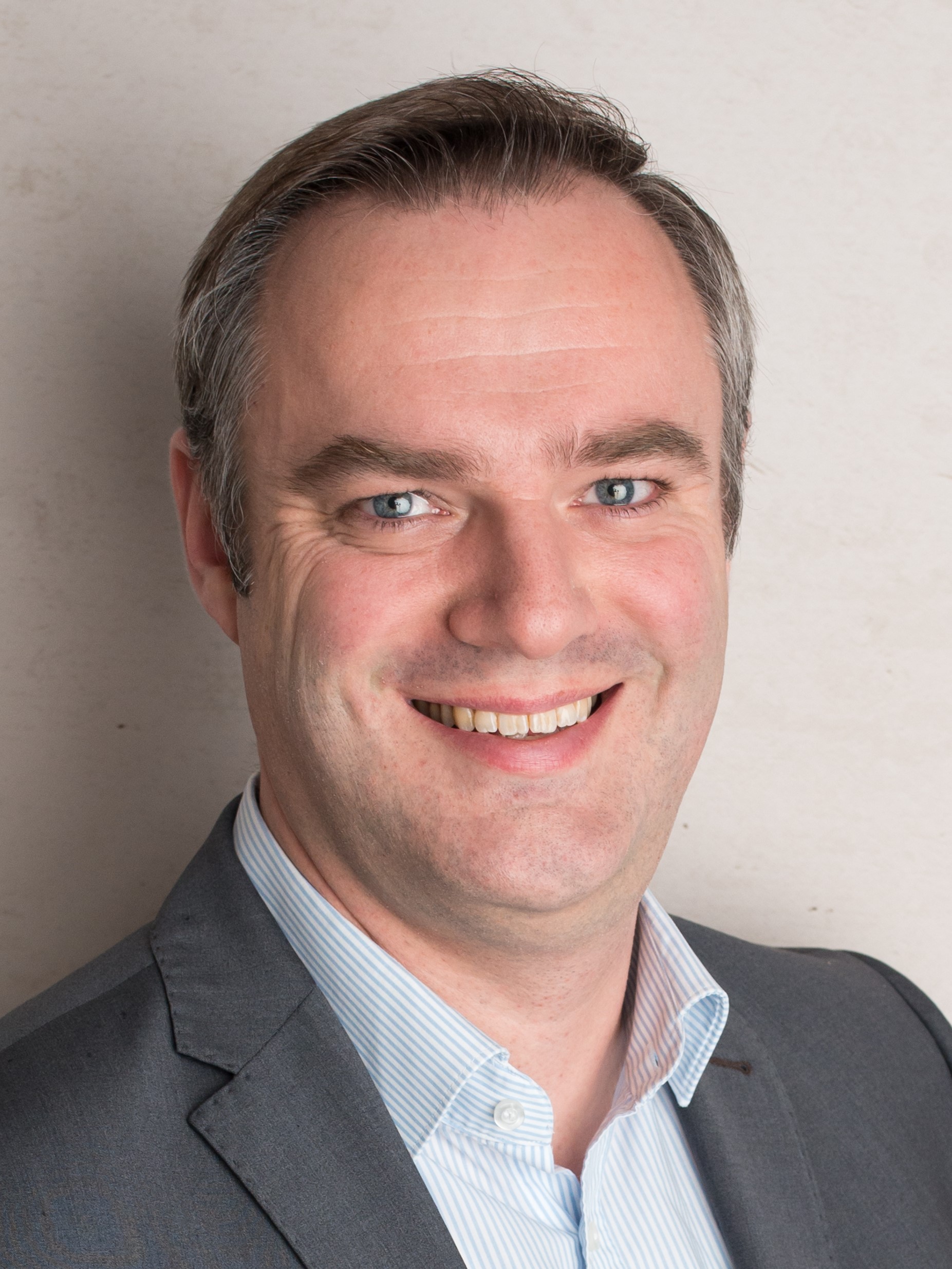
Michael Räckers
Michael Räckers is the CEO of the Department of Information Systems, University of Münster, he has been working in this position since 2012. After his Bachelor’s (2005) and Master’s degree (2006) he finished his PhD in 2010. He currently holds a position as tenured Associate Professor (Akademischer Direktor) at the Department of Information Systems. From 2007 until 2023 Michael served as Head of the Competence Center E-Government at the European Research Center for Information Systems (ERCIS). His research comprises Business Process Management for the Public Sector, E-Government Competences and the Conceptual Design of Public Services. Since its start he serves as Local Coordinator Münster within the PIONEER Program, an ERASMUS funded joint Master program, offered by KU Leuven, Belgium, TalTech, Estonia and University of Münster, Germany.

Miguel Alvarez Rodriguez
Miguel Alvarez Rodriguez is an accomplished professional with extensive expertise in policy, program, and project management, particularly within the realm of digitalization of public administration. With a proven track record, Miguel possesses a diverse skill set that includes proficiency in digital government, interoperability, smart cities, local digital twins, artificial intelligence, IT strategy, risk management, telecommunications, security, and information technology. Presently, he serves as a policy officer at DG Connect, steering diverse projects including international collaborations on AI for public good with the US (leading the technical coordination team), Digital Twins for smart cities, artificial intelligence, data spaces, interoperability specifications for cities (MIMs), ITU-T standardization, and Citiverse pre- standardization roadmap.
Leontina Sandu
Leontina leads the Interoperability and Digital Government Unit at the European Commission, in charge of policy and solutions for digital government. She works towards creating an Interoperable Europe through policies and common platforms, in partnership with public administrations in Member States and an active community of experts in interoperability. Leontina has more than 15 years of experience in the public and private sector in the digital domain. She held different roles from software engineer to leading teams developing data and AI services, mobile solutions to customer relationship management and designing digital strategies for medium-sized to large organisations. Leontina holds a degree in Information Technology from the Faculty of Cybernetics, Statistics and Information Technology in Bucharest and a M.Sc. in Financial Economics from Goteborg University.
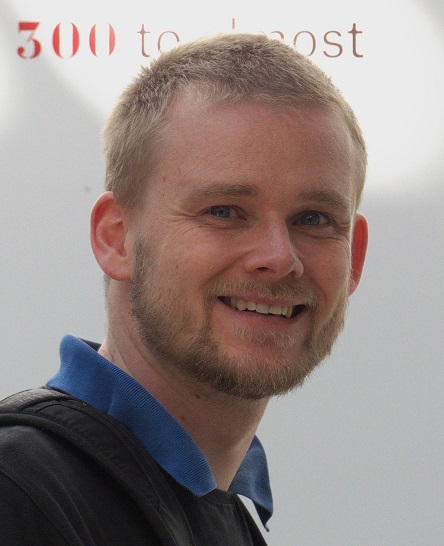
Sven Schade
Sven’s professional life is dedicated to the evolution of public governance, co-creation, and regulatory learning. The underlying interests include (i) research on human-centricity and public service innovation, (ii) policy, especially digital transitions, Responsible Research and Innovation, and public sector reforms; and (iii) the uptake of emerging technologies, including virtual worlds, artificial intelligence and others. Since September 2013, Sven is working as a scientific officer for the European Commission, where he is currently leading the scientific work on digital governance and public service innovation - in accordance with the priorities and the strategy of the Joint Research Centre (JRC) and its Directorate for Digital Transformation and Data.
Patrice-Emmanuel Schmitz
Patrice-Emmanuel Schmitz is lawyer and ICT practitioner. He produced reports and studies related to open licensing as from the year 2000, mainly for the European Commission. After coordinating the writing of the first version of the European Union Public License (EUPL), which was based on several academic contributions, Patrice ensures a legal support (answering Joinup user’s questions on licensing, on the practice of open source and solving GDPR related matters). He maintains the EUPL collection and the Joinup Licensing Assistant solution on the Interoperable Europe Portal.
Monika Sowinska
Monika Sowinska is Project Officer in the Interoperability and Digital Government Unit, Directorate-General for Digital Services, European Commission. Joined the European Commission in 2009 after 20 years’ experience in the private sector in Poland. Since 2017 responsible for the actions focusing on Sharing and Reuse of IT Solutions under the interoperability programmes. She is also in charge of the European Commission Open Source Observatory (OSOR).

Steven Van de Walle
Steven Van de Walle is professor of public management at the KU Leuven Public Governance Institute. His research focuses on public sector reform. He is the academic coordinator of the Erasmus Mundus MSc in Public Sector Innovation and eGovernance, a masters´ programme jointly organized by KU Leuven, the University of Münster and TalTech.
Maria A. Wimmer
Maria A. Wimmer is Full Professor of Electronic Government and chair of the research group E-Government at the University Koblenz, Germany, Department of Computer Science, since 2005. Her main research focus is on designing, implementing and evaluating socio-technical information systems for digital government, including the use of disruptive technologies. Key research in e-government and e-participation encompasses holistic design of complex information systems, interoperability and standardisation, enterprise architectures for public services, stakeholder engagement and co-creation, qualitative data analyses, as well as analysis, modeling and simulation of public policy and decision-making. Maria is a member of IEEE, ACM and the German Computer Society. Maria is PI in a number of R&D projects at European, national and regional level. Examples are PEPPOL, e-SENS, ESPDint, Interplat or Interproc on cross-border public e-procurement and interoperability; TOOP and SCOOP4C on the realization of the once-only principle across Europe; OCOPOMO, eGovPoliNet, AI and COVID on data-driven policy analysis and modelling; and BKS-Portal.rlp, Data2Health, EG-DAS, Gov 3.0, KleBe.digital, NoLa, Smart Region Linz am Rhein and Smart Vinery on leveraging disruptive technologies. She developed two MOOCs for the German eGov Campus, one on enterprise architecture skills and one on interoperability and standardisation. In 2018, Maria was named “One of the World’s 100 Most Influential People in Digital Government” by Apolitical (United Kingdom). More information can be found here: https://www.uni-koblenz.de/agvinf/
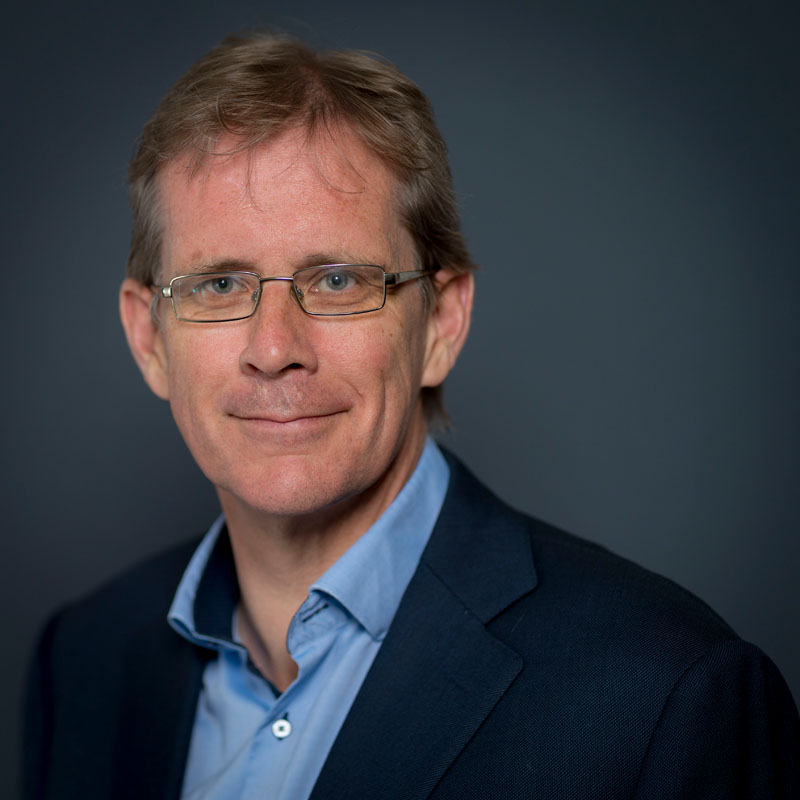
Edwin Wisse
Edwin Wisse is standardisation advisor at Logius. Logius is the digital government service of the Netherlands Ministry of the Interior and Kingdom Relations (BZK) and manages services and standards for digital government. Before starting at Logius Edwin worked on the information standard for the Dutch water authorities: Aquo. At Logius Edwin manages a number of standards and works on the further development of the Management and Development Model for Open Standards (BOMOS).
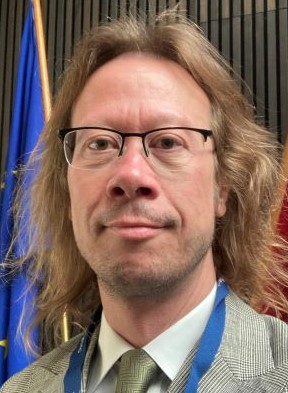
Kristoffer OLSEN
Kristoffer OLSEN spearheads the secretariat for digital-ready legislation within the Danish Agency for Digital Government. Since 2018 the secretariat has assisted ministries and agencies in conducting implementation impact assesments of proposed legislation and advised on best practice in ensuring that legislation is digital-ready.
More than 500 consultation responses have been drafted so far and the recommendations of the secretariat are followed by the responsible ministries wholly or in part in more than 75 pct. of cases.
Kristoffer has been responsible on the Danish side for managing a project under the Technical Support Instrument of DG REFORM, which had the aim of developing a method to identify the potential for revision of existing legislation in collaboration with the OECD.
Prior to joining the agency Kristoffer worked in management consulting for 10 years. Kristoffer has a background in Business Administration and Information Systems from Copenhagen Business School and the London School of Economics and Political Science.
